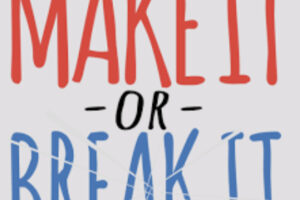Childhood lost
My childhood was a mosaic of experiences, both challenging and enriching, which I now regard as invaluable. Among these memories, one stands out: my time at a sleep-away camp. Despite initial trepidation and likely shedding tears, the farm-style setting with its assortment of animals and farming duties left an everlasting mark on me. Spending summers with my grandparents and great aunt in North Carolina became the highlight of my youth, fostering friendships that endure to this day. By the age of 11, I had navigated three distinct environments: inner-city life, affluent suburbs, and the warmth of southern hospitality. These diverse settings endowed me with a range of positive attributes, facilitating my ability to relate to people from all walks of life.

As a child, I was resilient, albeit reluctantly so—I was more prone to tears than to confrontation. Yet, I was instilled with the principle of not allowing anyone to exploit me. Thus, I found myself facing adversaries I sought to avoid. These early lessons forged not only physical fortitude but, more significantly, mental resilience.
My upbringing was characterized by self-directed learning. My peers and I constructed clubhouses, established leadership structures, and engaged in spirited sports competitions. We navigated conflicts, respected authority figures—even those we found challenging—and faced consequences for our missteps. Looking back, the educators who held me to high standards and offered tough love, like Mr. Brook and Ms. Frazier, made a lasting impact. Their influence, though not always appreciated at the time, shaped my character and aspirations. If I could revisit the past, I would express gratitude for their unwavering expectations and occasional hugs.
Regrettably, today’s youth are deprived of the same formative experiences. Instead of living and learning through hands-on interactions, they are inundated with curated content and manipulated by social media. I am immensely grateful for the diverse influences that shaped my upbringing—each echoing the same message: exhibit integrity, strive for excellence, and lead rather than follow. While my peers and I certainly made missteps, our ability to think independently and learn from our mistakes was pivotal.

Contrastingly, contemporary children are often raised by their smartphones, absorbing values and ideologies from the internet. As an adult and educator, I implore parents to engage with their children, limit screen time, and nurture critical thinking skills. We cannot turn back the clock to bygone eras; however, we must equip today’s youth with the moral compass and resilience needed to navigate an increasingly complex world. Failure to do so risks perpetuating societal division and eroding critical thinking skills. It is incumbent upon us to shape the future by empowering our children to think for themselves and engage meaningfully with the world around them. future will be generated by artificial intelligence and not human beings. What do you think?








